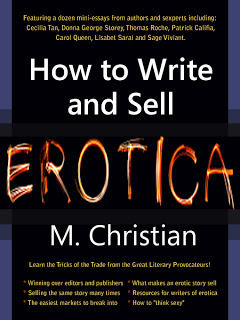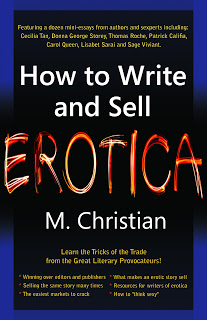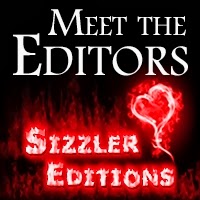Funny that these columns are called Confessions of a Literary Streetwalker because … well, I have a
confession to make.
I’m very much on the fence about the whole thing, and am
still dealing with doubts about whether or not I’ve made the right decision but
– in the end – I think it will end up being a good thing.
I know, I know: I’ve been a rather vocal – if not strident –
opponent of that particular corner of the social media universe, but a very
good friend of mine pointed out that, to call down The Bard, I “doth
protest too much.”
It hasn’t been easy: I tell ya, nothing like having a nearly
(gasp) twenty year writing career resulting in only 433 ‘friends’ and 68’likes’ on my author page to really make the dreaded depression demon really
flare up.
But I’m sticking with it – not because I think that I have
to, or that Facebook is the end-all, be-all solution to all my publicity needs –
but because it was something I really, honestly, didn’t want to do.
Obviously, explanations are in order. See, I’m a firm believer in pushing
yourself in all kinds of ways: as a person and, particularly, as a writer. Sure, you have to like what you are
doing – both in how you live your life as well as the words you put down on
‘paper’ – but growth comes not from comfort but from adversity, from
challenge.
I didn’t set out to be an pornographer, but then an
opportunity presented itself and (surprise!) I was actually pretty good at
it. I didn’t plan on being a ‘gay’
writer – because, no duh – I’m not, but (surprise!) I not just did it but came
to really enjoy it. I didn’t think
I could be a teacher, but (surprise!) I’ve found that I really get a kick out
of it.
I may have hated Facebook – hell, I still hate Facebook –
but I had to at least try it.
Maybe it will work out, maybe it won’t, but at least I’ll have stretched
myself.
For creative people of any ilk, that’s extremely important. For one thing, it can keep your
creativity rip-and-roaring, key to avoiding deathly boredom and staleness. Professionally, it’s essential: writing
just what you want, what you’re comfortable with, can really limit where you
can sell your work. That you love
to write, say, erotic romances is fine and dandy but if you do then there will
only so many places to show off, or publish, your work.
You want examples?
Fine: I’m now on Facebook – we’ve already discussed that uncomfortable
fact – but since I’ve written quite a few queer novels I’ve decided that my next
one is going to be (you ready for this?) straight – and not just straight but
with a ‘happy’ ending. My short
story work, too, has a tendency to be, let’s be honest here, bittersweet at
best – so my next collection is going to be much more uplifting. I’ve never written a play, so I’m
planning on writing one sometime this year. I’ve never written for comics – well, I wrote one – so I’m going to work on more. Will these projects be tough? Sure they will: but who knows what I may
discover about myself and what I’m capable of?
Who knows, maybe even Facebook and I will become fast and
good friends and will walk down the social media aisle together, skipping
merrily and holding hands.
And if not … well, I tried. There is nothing wrong with giving
something a shot but then
deciding it’s not for you. Rejection,
both internal as well as external, is part of a writer’s life. There’s
nothing wrong with it. Trial and error is how we learn, how we
grow.
Writers far too often think that the ‘names’, the
celebrities, the legends sat down and created wonders of the written word,
masterpieces of story, with no trials and tribulations. But – as I’ve said before – writers are
liars and very few will admit that they might have been an overnight success
… after failing for decades.
For example, take a look at the subtitle of this little
piece: “Oh, how beautiful.”
It comes from a wonderful quote by one of my favorite authors, Rudyard
Kipling. The whole thing reads: “Gardens are not made by singing
‘Oh, how beautiful,’ and sitting in the shade.”
In other words, to bloom you have to work; you have to be
brave and try new things, to push yourself, to challenge yourself personally
and professionally – and, equally, you have to accept that periodically things
just won’t work out.
Back to Mr. Kipling.
Sitting on my desk is a reproduction of a letter he received after a
submission to the San Francisco Examiner:
a reminder not just to keep trying, to never give up, but that you have to be
willing to face, and surpass, internal doubt, outside criticism.
The letter reads: “I’m sorry Mr. Kipling, but you don’t
know how to use the English language.”












